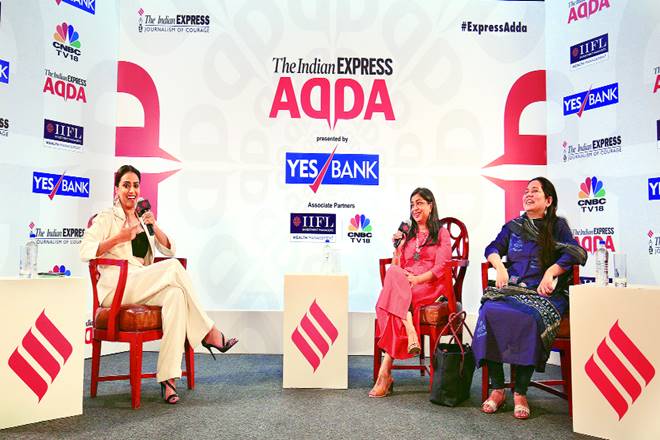On why she joined Bollywood
The real reason why I went to Bollywood is pretty sad and narcissistic. When cable finally came to India, my parents didn’t want to get it. So, there was only Doordarshan in my life for a very long time. The only entertainment we had was Chitrahaar. I was obsessed with Chitrahaar and I wanted to be in it. At that time — I don’t see them so much now — there used to be posters of film stars in autos and I wanted my pictures in autos. I wanted to be Shah Rukh Khan. But more seriously, when I was in college, I was seduced by how intimate the medium was.
On nepotism
I look at the whole nepotism debate as how you would look at caste and class privilege in society because it is a question of people being born into a certain kind of privileged position when it comes to access for the industry. This is an industry that could not get bank loans till the late ’90s. So, if you have a producer who is taking out a mortgage on his house to make a film then isn’t it obvious that he will cast his son? Once the corporates came in, once funding could be raised from sources, you saw films change. How is it that people like me or Rajkummar (Rao) or Richa Chaddha or Huma (Qureshi) or Nawaz (Nawazuddin Siddiqui), how is it that there are so many of us on screen now?
On speaking out in an industry that doesn’t
No one has told me in so many words that we didn’t cast you because you talk too much or that you are risky but many well-wishers have told me to be careful and that I may be running the risk of projecting myself as a troublemaker. Generally in India, and especially in today’s India, I think filmmakers and producers are a very vulnerable lot. If you look at the series of events that have happened, whether it was Karan Johar feeling pressured to apologise for casting Pakistani actors in his film, or it was the kind of violence that surrounded Padmaavat, I am not surprised that producers or directors feel nervous and scared.
On whether an artiste can be disengaged from society
Are we as a society ready to listen to people who have an opinion that is not in tandem with the dominant opinion? I don’t think we are. Look at what happened with Aamir Khan and that very innocuous remark he made at a dinnertable conversation with his wife. Why would a big star with a family put himself/herself at risk to these seemingly unhinged people for the sake of airing and venting opinion? I don’t see myself as a Bollywood star. I see myself as an actor, an artiste, and I don’t know how to be an artiste without engaging with the world around me.
On Veere Di Wedding breaking the glass ceiling
What is important is that a female-driven film, with four girls, two female producers, one of the writers is a girl — and in the mainstream commercial space — has made money. Veere… has really cracked the glass ceiling by giving an opening and making money. Why should commercial, masala entertainment only be a male space? Why can’t we, as girls, be flippant and have fun?
On whether Bollywood will get its #metoo moment
I think what happened in Hollywood is that when American society and media became more sympathetic to women survivors and victims of these kinds of stories, and public discourse was more receptive to these stories, that women started speaking up. I don’t know if I want to tell a survivor that you come and tell your story, and then get trolled and have channels that will put mics in your face and ask you really insensitive questions. I don’t know if I should bring a survivor and put them through that again without being able to guarantee that there are enough of us with you and will stand by you publicly. But I think that is happening. The Malayalam film industry is doing some very interesting stuff. There are a bunch of actresses who have gotten together (Women in Cinema Collective) and some of them just resigned from AMMA (Association of Malayalam Movie Artists), protesting their misogyny.


